Plenary & Key Note Speakers
Plenary Speakers
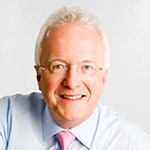
Herbert Puchta
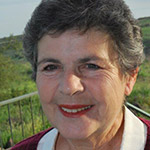
Penny Ur
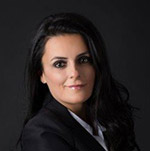
Evrim Kuran
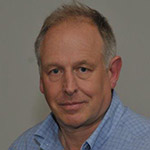
Gordon Lewis
Keynote Speakers
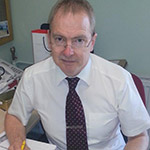
Dr. Simon Phipps
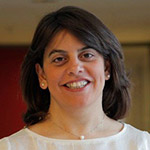
Nergis Uyan Akbay
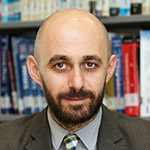
Engin Ayvaz
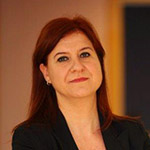
Çiğdem Tirkeş (PhD)
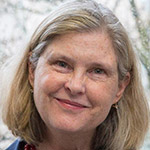
Jane Dunphy
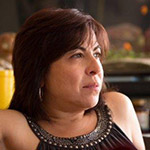
Burcu Tezcan Unal
Herbert Puchta - Bio
Herbert Puchta holds a Ph.D. in ELT Pedagogy. For several years, he was Professor of English at the Teacher Training University in Graz, Austria. He has been a plenary speaker at numerous international conferences and has conducted workshops and given seminars in more than 50 countries. He was also President of IATEFL (the International Association of Teachers of English as a Foreign Language).
For almost three decades, Herbert has done research into the practical application of findings from cognitive psychology and brain research to the teaching of English as a foreign language. Herbert has co-authored numerous course books as well as articles and resource books.
His latest publication is Empower, a general English adult course, co-written with Adrain Doff, Craig Thaine and others.
Herbert Puchta - Abstract
Emotional Engagement for adult students
For a long time, the standard beliefs and assumptions about successful language learning have been that the main challenges, particularly those of memory, are cognitive ones. However, recent findings in cognitive sciences clearly indicate that the brain is fundamentally ‘an organ of emotion’. Drawing on neuro-scientific studies and educational theory, we will discuss the key role of emotional engagement in the learning process of adults, and how factors such as challenge, personal discovery, ‘anticipated movement’, relevance, and participation as co-creators of experience can lead to a greater sense of control in the learning situation and to greater success. We will also see that memory itself is not like a container that stores information, or that we simply retrieve from it the knowledge that we have ‘uploaded’ as outcomes of our learning processes; instead, both the formation of memories and their recall engage emotion systems in the brain.
Penny Ur - Bio
Penny Ur has thirty-five years’ experience as an English teacher in elementary, middle and high schools in Israel. Now retired, she has taught B.A. and M.A. courses at Oranim Academic College of Education and Haifa University. She has lectured and published extensively on topics connected to the theory and practice of effective language teaching. She was for ten years the Series Editor of the Cambridge Handbooks for Language Teachers series. Her books include Grammar practice activities (2nd Edition) (2009), Vocabulary activities (2012), A course in English language teaching (2012), Discussions and more (2014), all published by Cambridge University Press.
Penny Ur - Abstract
Rethinking Presentation-practice-production in the post-method era
In many classrooms and coursebooks new grammatical features – and other language items as well –are commonly taught by the process of teacher presentation, followed by learner practice, and culminating in use of the feature by the students in their own production. The use of the PPP sequence has been severely criticized by proponents of a communicative approach. However, in this post-method era we may abandon the need to obey dictates of a particular approach or method, and instead simply take our students’ learning as our main priority and select or create the combination of language-teaching techniques that we believe will best achieve this goal. Within such a combination, PPP can probably make a substantial contribution. In this presentation I will suggest how, and when, it can be most effectively used.
Evrim Kuran - Bio
Evrim Kuran studied English Language & Literature at Hacettepe University and HR Management & Development at Marmara University; then received her Executive MBA degree at Sabancı University. She co-founded Dinamo Consulting in 2005. Her areas of expertise include Generational Studies with particular focus on Employer Branding, Generation Y, Organizational Attractiveness, Developing Effective Behavioral Patterns of New Age Talents. She has worked as the Employer Brand consultant of many local and global brands and she is also the Middle East Director of world’s leading employer branding research and consulting company, Universum. Her articles are published at certain national and global publications and portals. Evrim Kuran, at a certain stage of her career, also worked as an ELT professional at foundation schools. She is still a lifelong learner.
Evrim Kuran - Abstract
Generation Y: Understanding a Misunderstood Generation
Generation Y, a.k.a the millennials, refers to individuals born between 1980 and 1999. 35% of the population of Turkey consists of this young generation and at the end of every academic year, nearly 700,000 graduates from over 190 universities in Turkey start getting ready to join the labor market. It goes without saying that we can no more address this new generation with the tools we used to adopt.
The session will be questioning whether we have misunderstood this young generation with specific reference to the largest university students research done annually in Turkey and in 52 countries globally. Kuran, in her speech, will be posing the question: “Are our current systems in tune with the learning needs of Generation Y?” and help the audience explore why learning and development journey requires a paradigm shift from reactive to co-active approaches. The session will also provide the audience with practical ideas of how we can maximise the students’ engagement and inclusion in the learning context.
Gordon Lewis - Bio
Gordon Lewis is Vice President, Languages for Laureate Higher Education, based in Princeton, NJ, USA. He earned a B.S. in Languages and Linguistics from Georgetown University, Washington D.C. and an M.S. from the Monterey Institute of International Studies, Monterey , California . From 1991-1999 he ran a language school for children in Berlin, Germany. From 2001 to 2004 he was Director of Instructor Training and Development for Berlitz Kids in Princeton , New Jersey . From 2004-2008 he was Academic Director of Kaplan English Programs, based in New York City. Gordon has served on the committee of the IATEFL Young Learners Special Interest Group and served as an editorial board member of ELT Journal. He is co-author of Games for Children and Grammar for Young Learners and author of The Internet and Young Learners, Teenagers, and Making the Most of Technology, all published by Oxford University Press.
Gordon Lewis - Abstract
Reality Check: Evaluating the Impact of Technology in Language Teaching 10 years after Web 2.0
Technology moves so fast that its progress is considered exponential. Change in pedagogy is arguably less rapid and the disconnect between the two poses challenges to our profession. A decade after the announcement of Web 2.0 and on the threshold to Web 3.0 and beyond, it seems appropriate to take a critical look at what technology has meant for teaching and learning. In this talk we will look at existing data on technology impact on teaching and learning and consider how the experience of the last 10 years will inform our coming future.
Dr. Simon Phipps - Bio
Dr. Simon Phipps is Director of ATI (Anatolia Training Institute) in Ankara, and also a freelance teacher training and educational consultant. He worked as Deputy Director of Bilkent University School of English Language in Ankara for 20 years, where he was responsible for in-service teacher training and development. He designed and directed an in-house MA programme (Management in Education in ELT), and taught MA courses on linguistics, lexis and educational management. He set up and ran the Centre for Instructor Development, Education and Research (CIDER), and also helped establish a group of ‘English Language Teacher Education Researchers’ (ELTER) in Turkey. He has worked in ELT in the UK, Germany and Turkey since 1985, and has been involved in teacher education since 1989. He has worked on Cambridge ESOL courses (such as CELTA and DELTA) since 1993, and has been an External Assessor for the DELTA course since 1997 as well as Principal Examiner for Module 3 since 2008. He has a PhD in Education, from the University of Leeds, UK, with a focus on teacher beliefs. His current professional interests include teacher cognition, teacher learning, teacher education research, and educational management.
Dr. Simon Phipps - Abstract
Linguistics and Language Teaching: Insights into the Brain of the Learner
This talk aims to provide fresh insights into how students learn English, and why they find certain aspects of learning so challenging. It begins by looking at theories of learning and language learning to establish the fundamental features of learning a second language in a classroom setting in a non-English speaking environment. It then draws on SLA research findings and Psycholinguistics to explore the main challenges learners face, and suggest ways of overcoming these challenges. The last part presents a model for language learning which can help us conceptualise the learning process for our learners and enable us to reconsider the activities we use.
Nergis Uyan Akbay - Bio
Nergis Uyan Akbay graduated from METU Foreign Language Education Department and received her Master’s degree from Bilkent University on Management in Education. She completed Cambridge University DTEFLA and Bilkent University ADEM (Advanced Diploma in English Language Teaching Management). She worked in several positions at Bilkent University School of English Language (BUSEL) including English Language Instructor, Head of Teaching Unit, Teacher Development Coordinator, Teacher Trainer and Member of BUSEL Directorate (September’1995-February’2010). She has been working as the director of the Ozyegin University School of Languages (ScOLa) since February 2010.
Nergis Uyan Akbay - Abstract
Progressing From “Teacher Development” to “Developing Teacher”
How do we define teacher development? Is development a linear path or is it more complex and subtle? Is there more to it than just structuring a solo programme for all teachers to follow and expand from? Although the answers to these questions might vary from one to the other, there is a general agreement in the teaching profession that it requires “development”, “how” this should or can really take place remains a question.
Isn’t it ironic that the “post-method era” offers differentiated instruction and an individualized approach for effective learning, but teacher education and development- still adheres to a one-size-fits-all philosophy? It is high time that in light of the changes made in the field of education, “teacher development” be defined in terms of a more distinct, flexible and comprehensive approach.
Engin Ayvaz - Bio
Engin Ayvaz has worked as an instructor and administrator in the ELT field for more than 17 years and since 2005 has been the Director of School of Foreign Languages at Yasar University, Turkey. He earned his B.Ed in Teaching English as a Foreign Language from Anadolu University, and holds Cambridge ESOL’s International Diploma in Language Teaching Management from the SIT Graduate Institute. In 2013-14, he conducted postgraduate study in education at Boston University as part of Fulbright Humphrey Fellowship Program and also served as a visiting Fulbright fellow at the English Language Studies department of Massachusetts Institute of Technology (MIT). Engin is currently a site-reviewer and Commissioner (2014-16) at the Commission on English Language Program Accreditation (CEA). He has chaired, attended and presented at many international conferences and events. His work focuses on quality and excellence in language teaching and international higher education.
Engin Ayvaz - Abstract
“Redefining Roles: The EFL Instructor in the New Age”
The ELT scene in Turkey has witnessed tremendous growth in size and correspondingly rapid change in the norms of the field within the last decade. As a result, EFL instructors have switched from being traditional classroom teachers to becoming researchers, collaborators, organizers and innovators. This change was necessitated by the adoption of established quality standards in ELT, the expansion of institutional expectations and ever-changing student profiles. While it is fair to assert that this transformation has been widely internalized by the EFL community vis-à-vis acknowledgment and acceptance of good practice in the field, the viability of these new roles remains a major concern given the workloads of EFL instructors. Nevertheless, through careful prioritization, EFL instructors can still carve out a productive niche for themselves in this new world.
Çiğdem Tirkeş (PhD) - Bio
Çiğdem Tirkeş (PhD) is the director of English Preparatory School, Kadir Has University. Çiğdem Tirkeş has been in ELT profession since 1993, working as an EFL instructor, textbook writer, EAP programme coordinator, department manager and school director. She received her Bachelor’s Degree and Master’s Degree in ELT from Middle East Technical University. She also holds an Executive MBA degree received from Istanbul Technical University and a doctorate in Marketing and Production Management received from Marmara University. She completed a trainer training certificate programme offered by the British Council, Ankara. She has been involved in training and teacher education for many years. Her major areas of interest in the field of ELT are teacher training and development and ELT management.
Çiğdem Tirkeş (PhD) - Abstract
KNOW THYSELF, KNOW THY STUDENTS: Revisiting Your “Teaching Strategy Mix“ to Support the Learning Process of the New Generation of Learners
Most EFL teachers in the profession today were once learners of at least one foreign language when they were students. Their experience as a foreign language learner, combined with their professional education and training, helped them form a certain approach to teaching English. They developed a set of teaching strategies based on their former language learning experiences and their educational background in the field of ELT. Recent research on the study habits and learning behaviour of the new generation indicates that we may have to revisit our existing teaching strategies and revise and enrich them to ensure that they match the learning process and study habits of our students.
This presentation will first draw attention to the differences between the language learning experiences of many of today’s teachers and that of the new generation of students. It will hopefully lead the audience towards thinking about their teaching strategies critically in light of the differences highlighted in the talk. It will also aim to underline the importance of collaborative learning, scaffolded instruction and differentiated, flexible and adaptive teaching strategies to better support our students and to foster their language learning. Examples of the application of some of these strategies at Kadir Has University , English Preparatory School will also be provided.
Jane Dunphy - Bio
Jane Dunphy directs MIT's English Language Studies Program and has taught a variety of subjects in professional and cross-cultural communication, including Communication for Policy Makers; Writing for Scientists and Engineers; Globalization: The Good, the Bad and the In-between; Advanced Speaking and Critical Listening; and Communicating across Cultures. In addition, she collaborates with colleagues across MIT in a variety of ways by (1) contributing to the conversation about, and effective pedagogy for, the multicultural classroom; (2) providing support to international TAs and faculty members through workshops, seminars and consultations on teaching in the American classroom; (3)) educating the community about various aspects of language, culture and professional communication in seminars designed for student organizations and academic programs. Beyond MIT, Jane has designed workshops on different aspects of professional communication for a variety of domestic and international organizations, hi-tech companies, and academic institutions, including the Society of Women Engineers (SWE), Daimler-Chrysler, GEN3, the International Institute in Spain, the Masdar Institute (UAEs), Vellore Institute of Technology (India), and Harvard’s Kennedy School of Government. She is currently on sabbatical at Yasar University in Izmir, Turkey. Her research interests involve how English as a lingua franca, corpus linguistics, and genre theory can inform best practices in professional and academic communication protocols across cultures. Jane Dunphy is co-author, with Catherine Ross, of Strategies for Teaching Assistant and International Teaching Assistant Development: Beyond Micro Teaching (Jossey-Bass) published in 2007.
Jane Dunphy - Abstract
Teacher as Culture & Communication Coach
As institutes of higher education around the world adopt English as a medium of instruction (EMI), we need to redefine our roles. Our traditional focus on teaching and measuring competence in the four language skills must shift to incorporate a broader definition of communicative competence. Because university students must learn the communication conventions of their disciplines to engage productively in their intellectual communities, we need to incorporate disciplinary communication practices into our teaching repertoire. And because these EMI communities are multilingual and multicultural, we need to educate ourselves and provide opportunities for members of our communities to learn more generally about how culture shapes communication norms. In this way, English teachers will be instrumental in fostering a cross-cultural proficiency that transcends linguistic competence.
Burcu Tezcan Unal - Bio
Burcu Tezcan Unal has over 20 years of experience in the field of ELT as a teacher, trainer, teacher educator, material producer and academic coordinator, holding a TESOL MSc from Aston University. She held most of these roles and responsibilities during the longest period of her career at Istanbul Bilgi University from 2003 to 2013. Burcu has been an active member of IATEFL TTEd SIG committee since 2011. Currently, Burcu has been an EFL teacher and level coordinator at Zayed University, the UAE, and a (EdD) doctorate student at the University of Liverpool studying Leadership in Higher Education. Tezcan-Unal is very interested in the ever-changing learning dynamics, professional development of teachers, organisational learning andeducation in the new century.
Burcu Tezcan Unal - Abstract
The demands of the new era and ELT
The competitive working environments our learners are preparing for demand many skills that are significantly beyond accurate use of English and ICT skills. This workshop will focus on the transferable skills, which a new work environment will demand of our learners. By cultivating these skills our learners can gain an advantage in the next generation job market. The session will open a platform to discuss and reflect on to what extent English classes, teaching materials, activities and assignments serve our learners and the other stakeholders. It also promises to give some food for thought to practising teachers, curriculum developers, digital or print material producers, assessment specialists and heads of departments.
